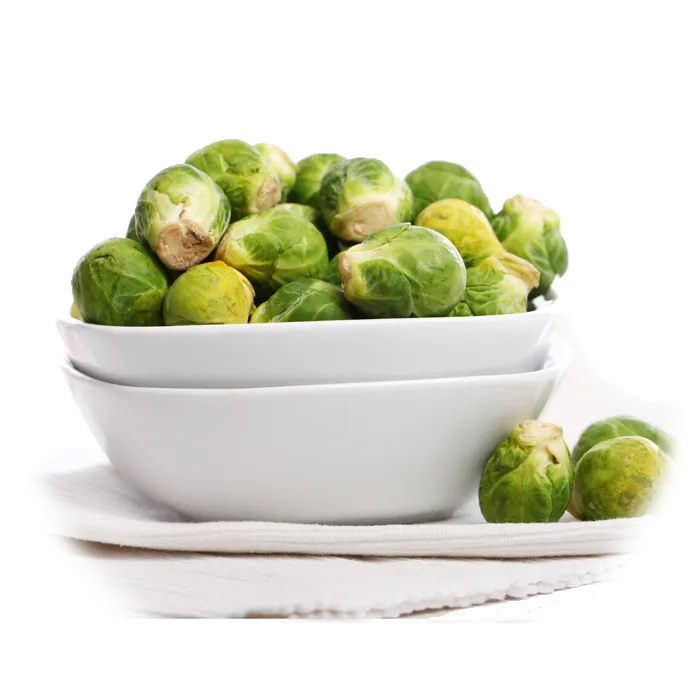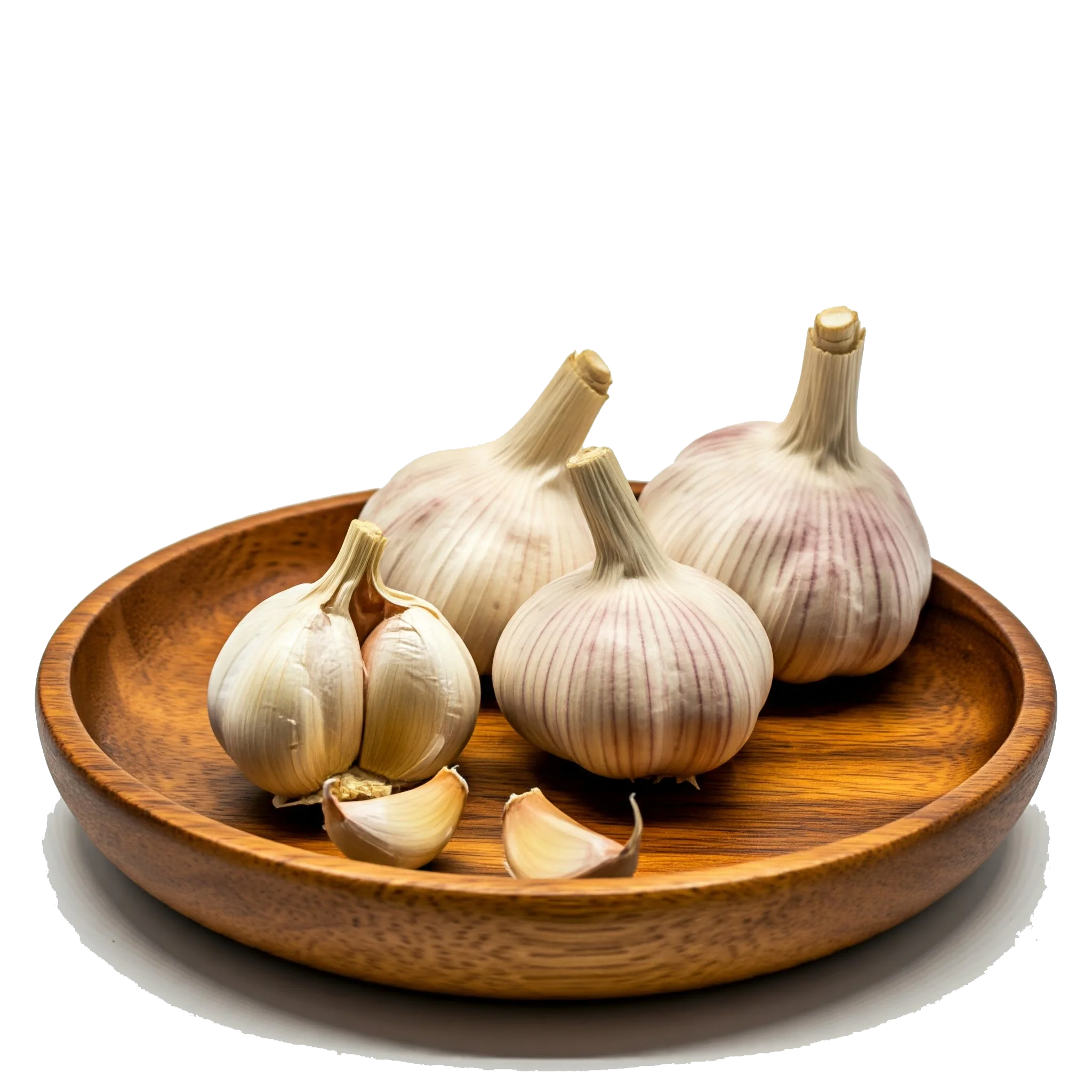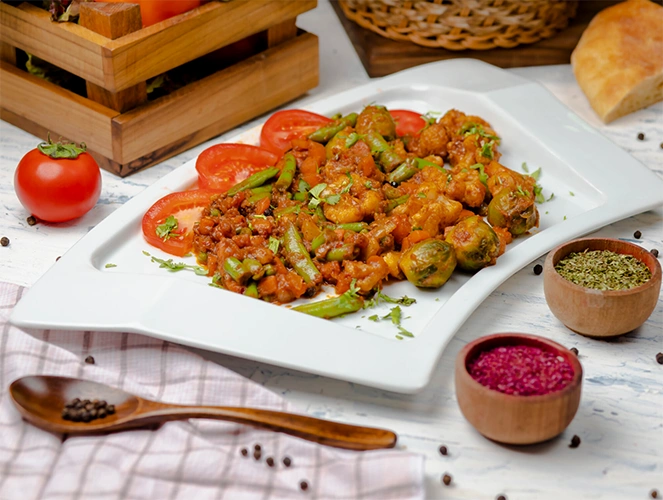

Top Health Benefits of Indian Mixed Vegetable Curry You Need to Know
This Mixed Vegetable Curry is a nutrient-dense dish packed with a variety of vegetables that offer a broad spectrum of health benefits. The combination of cauliflower, carrots, peas, and potatoes provides a rich source of vitamins and minerals such as vitamin C, vitamin A, potassium, and folate, which are essential for maintaining immune function, healthy vision, and proper cell growth. The use of spices like turmeric, coriander, and cumin not only enhances the flavor but also provides anti-inflammatory and antioxidant properties that can help reduce the risk of chronic diseases such as arthritis and heart disease. Additionally, the dish is high in dietary fiber, which aids in digestion and helps maintain healthy cholesterol levels. The inclusion of ginger and garlic further contributes to the dish’s health benefits by supporting the immune system and acting as natural antioxidants. Overall, this dish is low in calories, rich in plant-based nutrients, and provides a balanced mix of carbohydrates, fiber, and healthy fats, making it an excellent option for those looking to maintain a healthy diet.
 Brussels Sprouts : 16 Piece
Brussels Sprouts : 16 Piece Potato : 2 Piece
Potato : 2 Piece Carrot : 1 Piece
Carrot : 1 Piece Green Peas : 1/2 Cup
Green Peas : 1/2 Cup Bell Pepper : 1/3 Cup
Bell Pepper : 1/3 Cup Zucchini : 1 Piece
Zucchini : 1 Piece Tomato : 2 Piece
Tomato : 2 Piece Onion : 1 Piece
Onion : 1 Piece Garlic : 2 clove
Garlic : 2 clove Ginger : 1 Teaspoon
Ginger : 1 Teaspoon Curry : 1 Teaspoon
Curry : 1 Teaspoon turmeric : 1/2 Teaspoon
turmeric : 1/2 Teaspoon Coriander seed powder : 1 Teaspoon
Coriander seed powder : 1 Teaspoon Cumin : 1/2 Teaspoon
Cumin : 1/2 Teaspoon Salt : as needed
Salt : as needed black pepper : to taste
black pepper : to taste Sunflower Oil : 4 Tablespoon
Sunflower Oil : 4 Tablespoon cilantro : 2 Tablespoon
cilantro : 2 Tablespoon Green Beans : 1 Cup
Green Beans : 1 CupRecipe :
For 4 people
Enjoy your flavorful, wholesome vegetable curry!
When preparing Mixed Vegetable Curry, there are a few essential steps to keep in mind to ensure the best flavor and texture. First, it’s important to cook the vegetables in stages, starting with the firmer ones like potatoes, cauliflower, and carrots, as they require more cooking time. This ensures that all the vegetables are evenly cooked and retain their texture. Additionally, when sautéing the onions and spices, make sure to allow enough time for the spices to bloom in the hot oil, as this will release their full flavor. Be cautious not to overcook the vegetables as they can become mushy, which would alter the intended texture of the dish. It's also important to season the curry at every stage of cooking, adjusting salt and spice levels as needed to suit personal taste. Lastly, letting the curry simmer gently, covered, helps the flavors meld together, making the dish more aromatic and flavorful. For a richer taste, you can add a little coconut milk or cream at the end, but if you're aiming for a lighter version, it’s best to stick to water or vegetable stock.

This Mixed Vegetable Curry is an excellent choice for a wide range of dietary preferences, making it suitable for vegetarian and vegan diets, especially when prepared without dairy or animal-based ingredients. The dish is naturally gluten-free, making it a safe option for individuals with gluten intolerance or celiac disease. It is also low in fat and can easily be adapted to a low-calorie diet by using minimal oil or substituting with healthier fat options like olive oil. However, those following a strict ketogenic diet may find this dish too high in carbohydrates due to the inclusion of starchy vegetables like potatoes and carrots, which could potentially interfere with ketosis. For individuals with high blood sugar or diabetes, it’s advisable to monitor the portion size of starchy vegetables to prevent spikes in blood sugar levels. On the other hand, this curry is a great choice for those following a high-fiber, heart-healthy, or plant-based diet, as it provides a wide array of essential nutrients without excess calories or unhealthy fats.
Nancy (May 23, 2025, 6:08 p.m.) : I liked a different taste for me when I have a gluten -free diet